What is retinol?
The terms you need to know:
- Retinoids: This is the family name of vitamin A derivatives
- Retinoic acid (aka Retin-A, Tretinoin): Prescription-strength, this is the granddaddy of retinoids and is the form your skin can readily utilise.
- Retinaldehyde (retinal): This requires just one conversion to retinoic acid so, according to skincare brand Medik8, it can act 11 times faster than retinol. Drawbacks are that it’s a little more irritating than retinol and can be unstable like other retinoids, which means they can degrade upon regular exposure to light, heat and air – this is why packaging and formulation needs to be carefully considered by brands.
- Retinol: Before your skin can use retinol, it needs to be firstly converted to retinaldehyde and then to retinoic acid – a two-step process.
- Retinyl retinoate: This new-generation retinol derivative has a slower conversion into retinoic acid than retinol. It’s also thought to be less sensitising than retinol.
- Retinyl esters: These include retinol propionate and retinyl palmitate. These need three conversions: first to retinol, then retinaldehyde, then retinoic acid. This means they will take longer to be effective but they’re gentler.
- Hydroxypinacolone retinoate (often seen marketed as granactive retinoid): This is a retinoic acid ester, which means it’s directly “related” to retinoic acid so doesn’t need converting to retinoic acid. It’s a newer form so hasn’t got the same amount of research behind it as some other retinoids. You might see this used in higher concentrations because it’s a gentler form of retinoid.
Find skin-renewing retinoids in these anti-ageing creams, lotions and serums
Kate Somerville DermalQuench Liquid Lift + Retinol (£80)
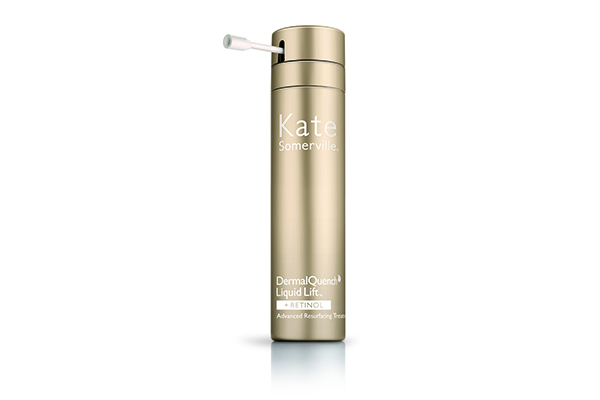
The Organic Pharmacy Retinol Night Serum (£37)
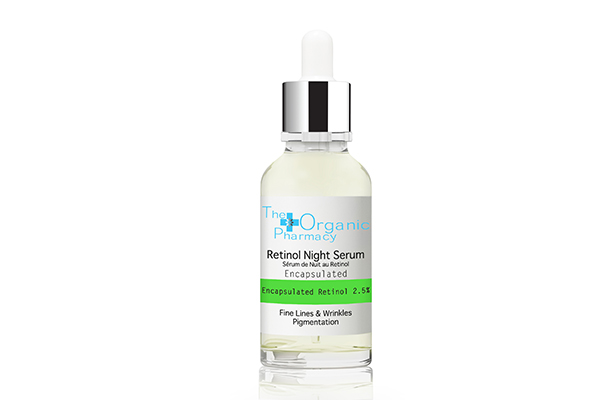 Contains encapsulated retinol at 2.5 per cent to give fine lines and uneven skin a real boost. ‘Encapsulating retinol in lecithin [a lipid] supports its delivery and skin penetration, and allows for a more even release of the active ingredient,’ says Adam Kielbasa, Head of Training at The Organic Pharmacy. ‘This is important because retinoids can be irritating and you need to allow your skin to build tolerance for them.’
Contains encapsulated retinol at 2.5 per cent to give fine lines and uneven skin a real boost. ‘Encapsulating retinol in lecithin [a lipid] supports its delivery and skin penetration, and allows for a more even release of the active ingredient,’ says Adam Kielbasa, Head of Training at The Organic Pharmacy. ‘This is important because retinoids can be irritating and you need to allow your skin to build tolerance for them.’La Roche-Posay Redermic R (£29.50)
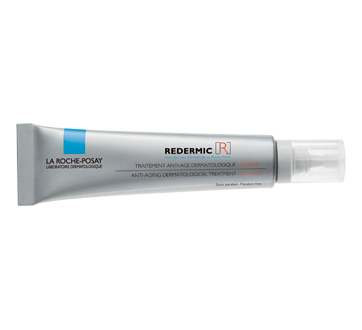
Sunday Riley A+ High-Dose Retinoid Serum (£70)
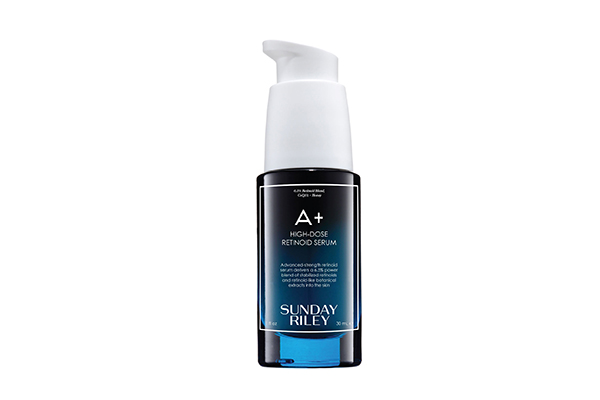 is ideal for when your skin has built up a tolerance to retinol. It combines a 5 per cent retinoid ester blend, 1 per cent liposomal-encapsulated retinol blend, and 0.5 per cent blue-green algae, which has a retinoid-like action to reduce signs of ageing, plus botanicals such as Hawaiian white honey, cactus extract and ginger to soothe any effects of the retinoids.
is ideal for when your skin has built up a tolerance to retinol. It combines a 5 per cent retinoid ester blend, 1 per cent liposomal-encapsulated retinol blend, and 0.5 per cent blue-green algae, which has a retinoid-like action to reduce signs of ageing, plus botanicals such as Hawaiian white honey, cactus extract and ginger to soothe any effects of the retinoids.Estee Lauder’s new Perfectionist Pro Rapid Renewal Retinol Treatment (£63)
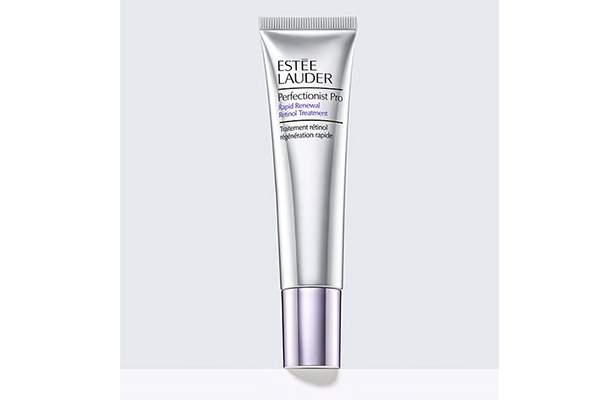 Teams its pure retinol with soothing, hydrating ingredients such as hyaluronic acid, vitamins E and C and algae extract. It claims to boost cell turnover from day one and to improve skin tone in one month.
Teams its pure retinol with soothing, hydrating ingredients such as hyaluronic acid, vitamins E and C and algae extract. It claims to boost cell turnover from day one and to improve skin tone in one month.The Ordinary Granactive Retinoid 2% in Squalane (£7.10)
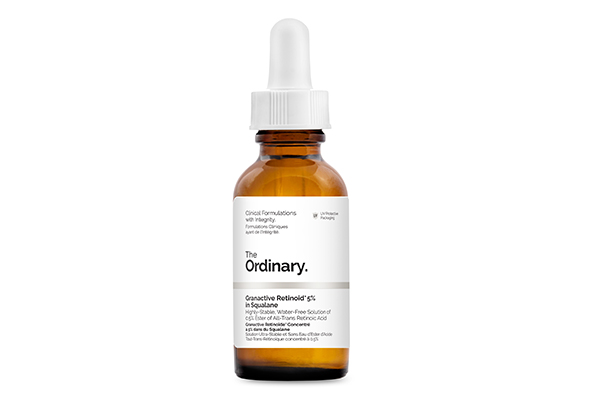 Rated by Dr Anjali. ‘It’s ideal if you’re prone to redness, as the serum contains a less irritative retinoid as an alternative to retinol.’ If you want to try retinoids without spending a fortune, The Ordinary’s range goes from a low-strength Retinol 0.2% in Squalane to a high-strength but low irritation Granactive Retinoid 5% in Squalane. In each case, the squalane – a natural substance often derived from olives or other plants – heaps moisture onto your skin to keep it supple while the retinoid gets to work.
Rated by Dr Anjali. ‘It’s ideal if you’re prone to redness, as the serum contains a less irritative retinoid as an alternative to retinol.’ If you want to try retinoids without spending a fortune, The Ordinary’s range goes from a low-strength Retinol 0.2% in Squalane to a high-strength but low irritation Granactive Retinoid 5% in Squalane. In each case, the squalane – a natural substance often derived from olives or other plants – heaps moisture onto your skin to keep it supple while the retinoid gets to work.Medik8 Retinol 10TR Serum (£29)
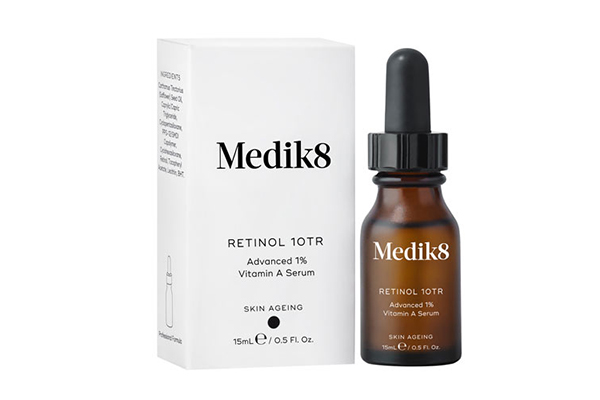 Also recommended by Dr Anjali. Although it’s a strong concentration (1% retinol) it’s formulated to slowly release the formula through the night – think of it as a dripping tap rather than an instant flood! Start by using just twice a week for two weeks before applying every other night for two weeks, then every night.
Also recommended by Dr Anjali. Although it’s a strong concentration (1% retinol) it’s formulated to slowly release the formula through the night – think of it as a dripping tap rather than an instant flood! Start by using just twice a week for two weeks before applying every other night for two weeks, then every night.The new plant-based alternative to retinol
You can find bakuchiol in the following new beauty products:
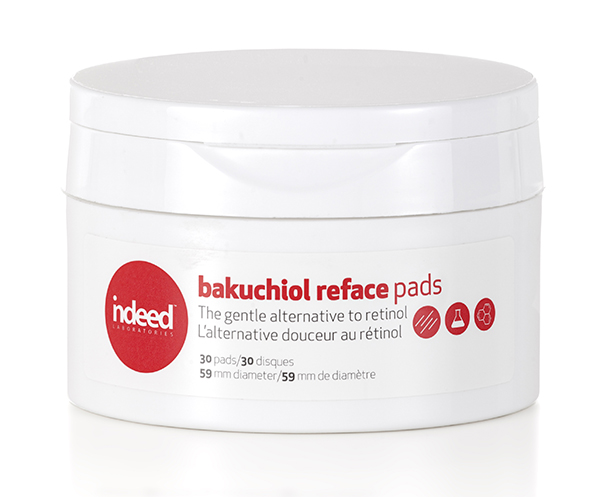
1. Indeed Labs Bakuchiol Reface Pads (£19.99)
These are for swiping over your cleansed face to let the mix of bakuchiol, niacinamide (vitamin B3) and allantoin calm, clear, rejuvenate and plump up your skin.

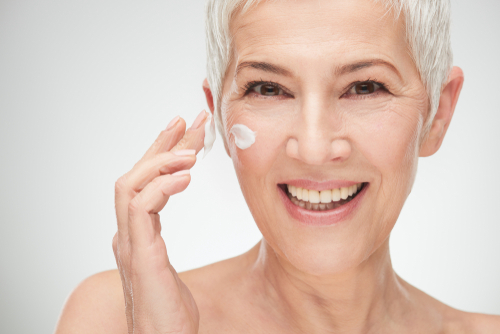
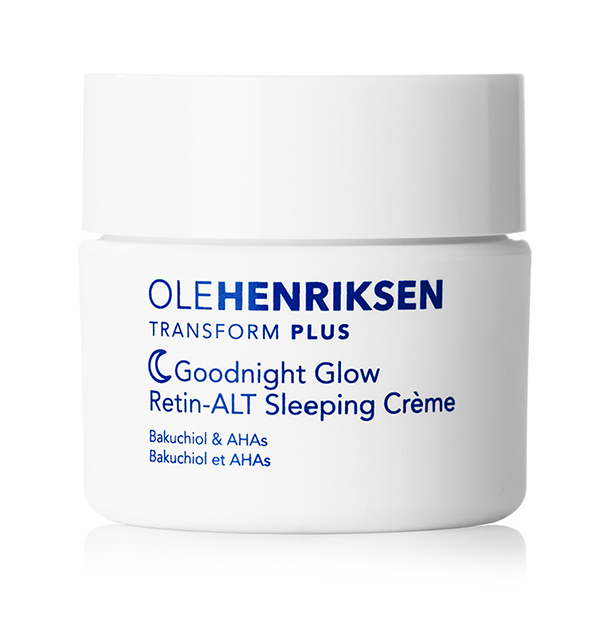 2. Ole Henriksen Goodnight Glow Retin-ALT Sleeping Creme
2. Ole Henriksen Goodnight Glow Retin-ALT Sleeping Creme




